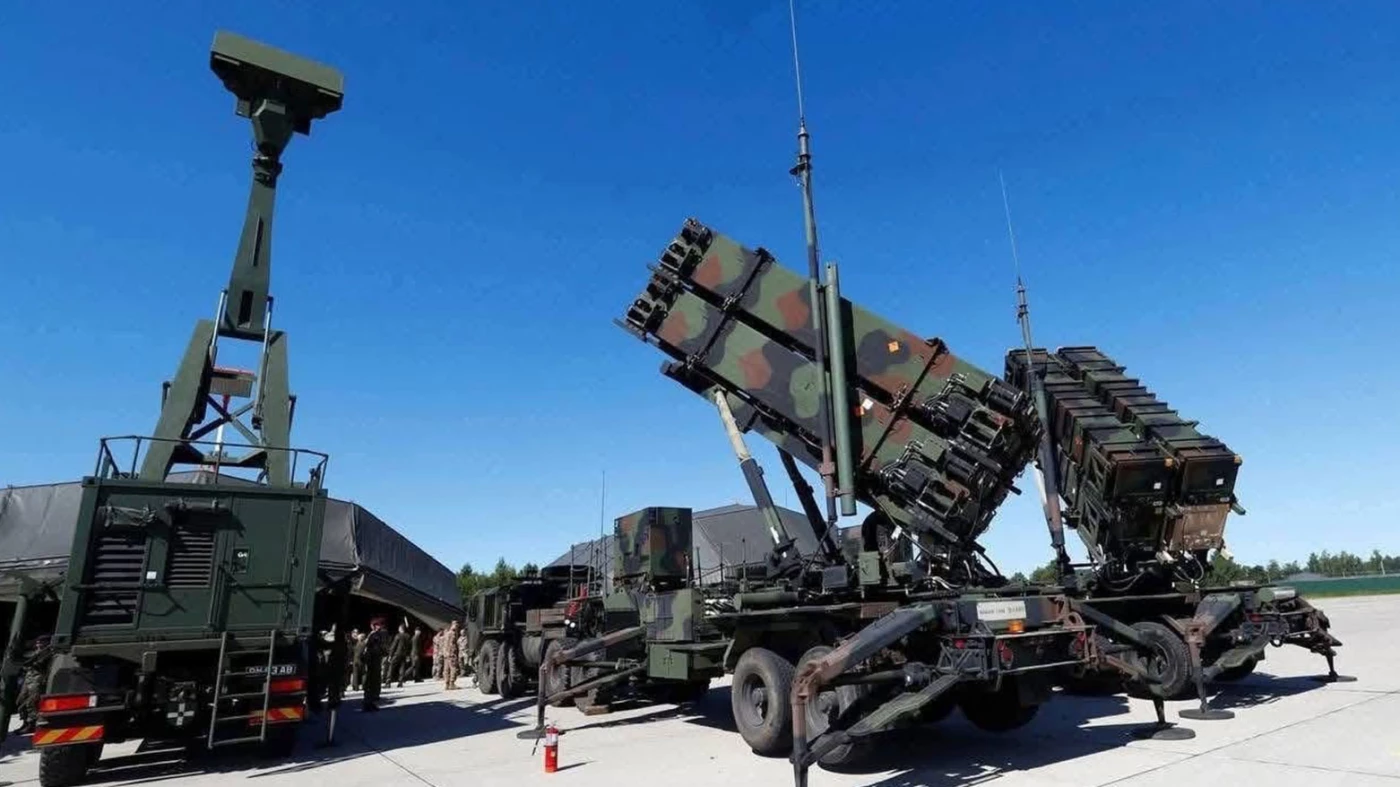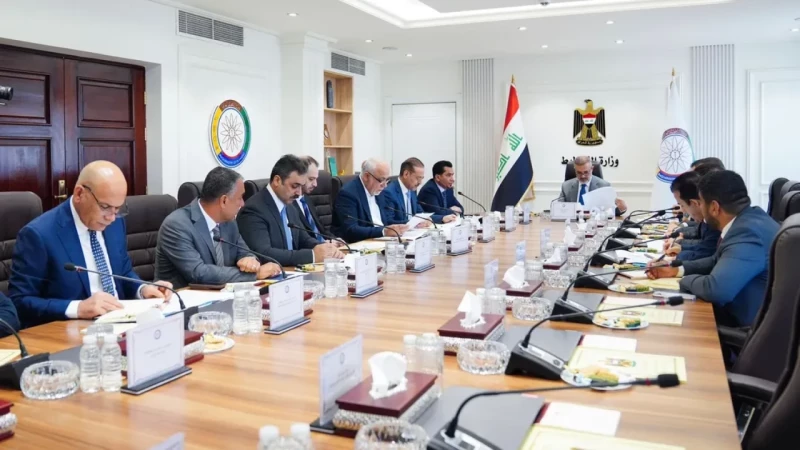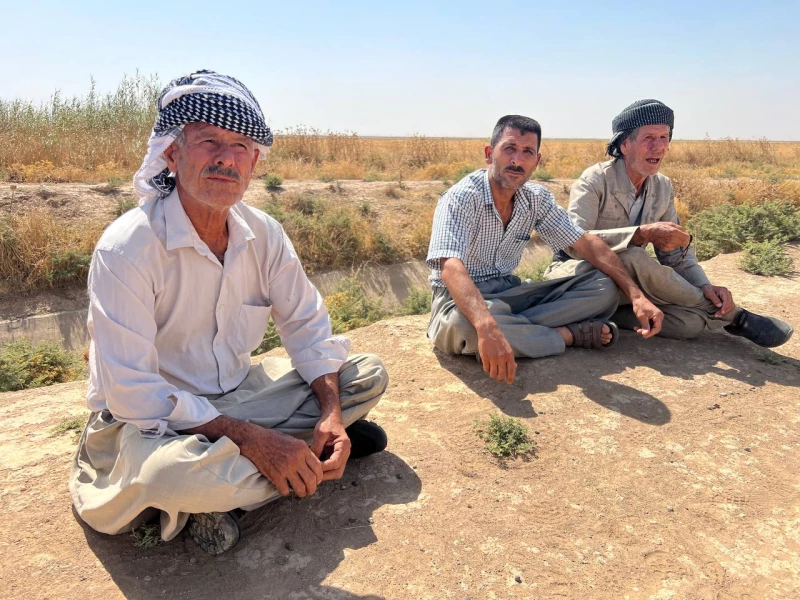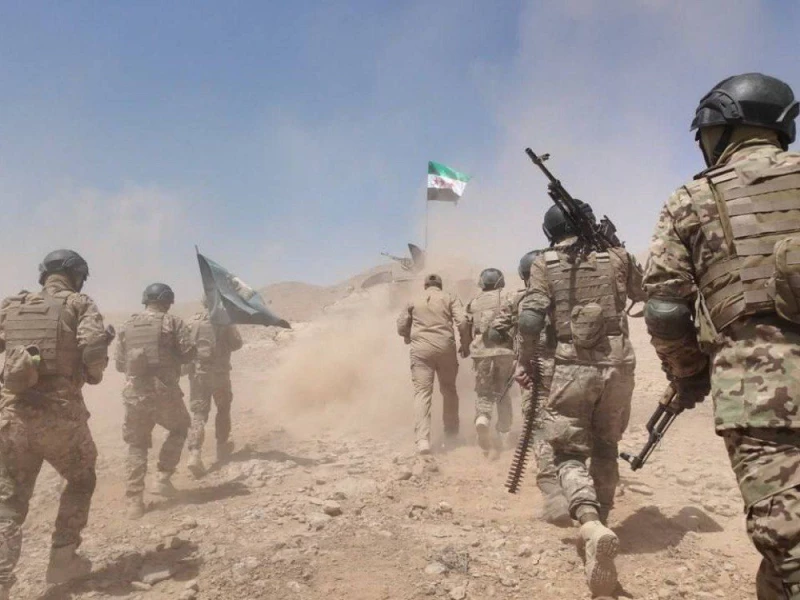ERBIL, Kurdistan Region of Iraq - The minister of defense of Iraq said late Thursday that “in the coming months” they will receive advanced defense systems from South Korea, as part of Baghdad’s efforts to secure the country’s airspace, in the wake of ongoing fighting between neighboring Iran and Israel.
Thabet al-Abbasi said they had struck a deal with LIG Next1, a South Korean company affiliated with the Ministry of Defense of the Republic of Korea.
"We are scheduled to receive the first batch of this system in the coming months, according to a carefully considered timetable that takes into account our national priorities and the needs of our armed forces,” Abbasi said, adding they have already recently received "the first batch of French Caracal multi-role aircraft, and further shipments will follow in the coming period."
"Protecting Iraq's skies and preserving its sovereignty is not just a slogan; it is a responsibility we undertake with all seriousness, working towards it daily through planning, implementation, and continuous evaluation,” the defense minister said.
Iraqi lawmaker says billions wasted in air defense deals
An Iraqi lawmaker has warned of what he called “big and dangerous” corruption cases in Iraq’s air defense system contracts.
“There are big and dangerous corruption cases and major waste of public money in the air defense file. Despite that, Iraq still does not have modern and advanced air defense systems to stop any foreign attacks. We do not know where these billions were spent, as there are no results on the ground,” Mohammed al-Rumaithi, a member of the parliamentary Security and Defense Committee, told The New Region.
Rumaithi went on to say that “there is a political will to hide these files and not reveal them. This may be one of the main reasons why parliament sessions have been delayed, to prevent the opening of corruption files. But we are determined to open these files and hold the corrupt accountable, no matter who they are. We will take a stand before the courts by submitting the files we have regarding corruption and waste in air defense contracts.”
Rumaithi had earlier called for a “serious” review of Iraq’s defense system and activating air protection measures.
Around “30 trillion Iraqi dinars were allocated over 10 years to buy air defenses. Eleven trillion dinars were spent, and 19 trillion were returned to the government,” the lawmaker had said, demanding a review of the 11 trillion dinars spent on air defenses.
In the meantime, retired military adviser Maj. Gen. Safaa al-Asam claimed that major countries object to Iraq owning advanced air defense systems.
“Iraq recently signed a contract with France to purchase planes made for air defense to protect Iraqi airspace,” Asam said. “There are also new contracts with South Korea to buy advanced air defense missiles. These missiles are highly accurate and efficient. Many developed countries use them. Iraq got a contract for medium-range missiles, but they were supposed to be long-range.”
The retired military advisor detailed that “Iraq was not given long-range missiles because of objections from major countries, including the United States. These missiles could target F-35 jets. The medium-range missiles can target F-16 jets and smaller aircraft. These missiles are similar to the US Patriot system.”
The adviser stressed the need to test these missiles when they arrive in Iraq to make sure they meet the terms of the contract. He said Iraqi teams should also be trained to use these advanced systems, and that must be part of the contract, warning that Baghdad has seen corruption and waste in most defense contracts over the past years.
For years, Iraq ignored this important and sensitive file. Billions were spent, but no modern air defense systems were bought. Iraq depended on Global Coalition forces to stop attacks, but the US was not serious about protecting Iraqi skies and even violated Iraq’s airspace,” he explained.
Since last week, Iraq’s skies have become a battlefield of rockets, drones, and other weapons, as Iran and Israel entered a conflict. The Iraqi government filed a complaint with the UN Security Council, asking it to stop Israeli violations of Iraqi airspace, urging the US to protect its skies under the strategic agreement between Washington and Baghdad.
Iraq's strategic location between warring Israel and Iran put the country in a precarious position.
Earlier, military expert Saif Raad talked about the Pantsir-S1 system, which was recently deployed in several areas in Iraq as a defense step during the growing military conflict between Iran and Israel. Iraqi airspace has continued to be violated by Israeli aircraft, prompting Baghdad to protest to the UN Security Council.
Iraq also asked the US to stop Israel from violating its airspace again.
“The Pantsir-S1 is a Russian air defense system with short to medium range. It is made to protect military and civilian areas from many air threats, including missiles, planes, and drones. Iraq has had this system since 2014 and received 48 units by 2018 to improve its air defense.”
He said the system combines missiles and guns, giving layered protection. It can be mounted on vehicles or carried by hand. It includes radar and guidance systems. It uses radar that can detect targets up to 75 kilometers away, including those with low radar visibility.
The system features 12 missiles and two 30mm twin cannons, with a range of 4 kilometers and an altitude of 3 kilometers. These are used against close-range targets or when missiles are finished, according to the military expert.
He said the system uses radar for early detection, even of low-flying missiles. Missiles are tracked using radar or optical systems for accurate targeting.
He explained that “the system calculates the missile’s path to find the interception point.”
He concluded that the system was used “successfully” by the Iraqi army to shoot down a drone in Kirkuk province in August 2024.


 Facebook
Facebook
 LinkedIn
LinkedIn
 Telegram
Telegram
 X
X



